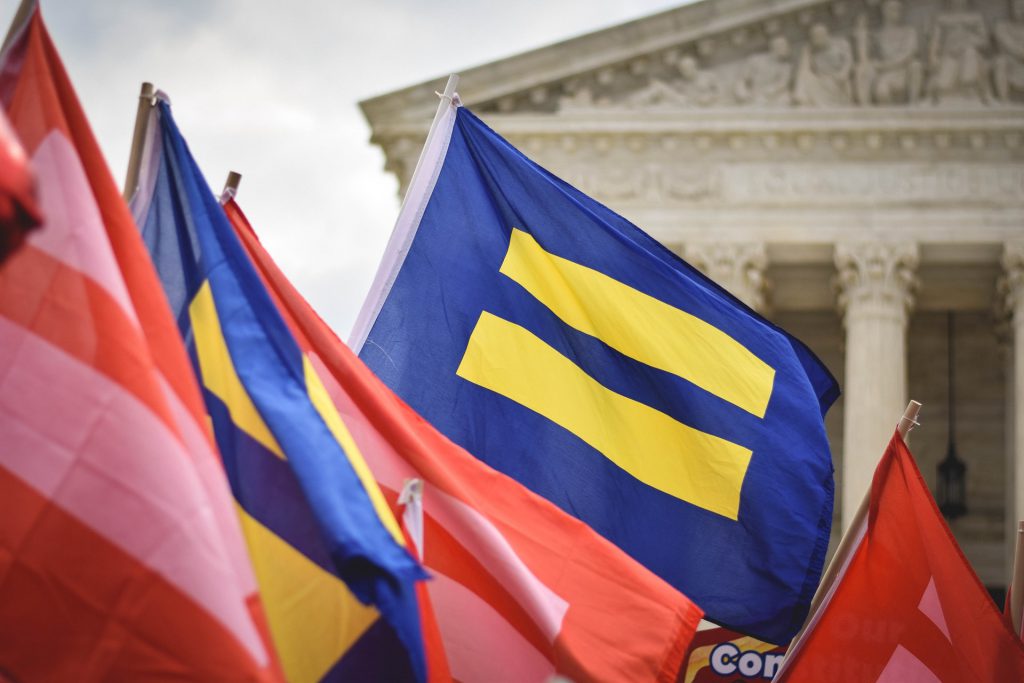
Published March 1, 2021
When conservatives invoke their right to religious liberty, progressives raise a common objection: third-party harm. Religious people, the argument goes, shouldn’t get to live their faith in ways that burden people who don’t share their beliefs.
On this view, the Christian owner of a small bakery who can’t in good conscience bake a cake celebrating a same-sex wedding shouldn’t get to make LGBT customers bear the social stigma of being refused service (even if most other bakers in the area will provide them with a cake).
Catholic nuns whose life’s work is to serve the elderly and the poor can’t deny their employees insurance coverage of contraceptives that cause early abortions (even though those employees have many other forms of low-cost access).
A Catholic foster-care agency committed to the view that children deserve a mother and a father shouldn’t get to certify opposite- but not same-sex couples as potential foster parents (even if there are many other agencies that would certify same-sex couples).
In all these cases and others like them, progressives see third-party burdens—for people having to find another wedding service provider, another job or another form of low-cost contraception—as weighing heavily against, or simply overriding, claims to religious liberty exemptions. That’s why it should come as no surprise that the progressive-driven Equality Act explicitly forbids any appeal to the Religious Freedom Restoration Act as a defense.
The Equality Act—just passed in the House last week, and soon to come up for a vote in the Senate—replaces the term “sex” in federal civil rights law with “sex, sexual orientation, and gender identity.” It thus gives sexual orientation and gender identity the same status as other protected classes under civil rights law, like race and disability.
The goal of eradicating unjust discrimination should appeal to all of us. But the Equality Act is a bludgeon, not an instrument, for doing that; it applies much more broadly and harms many other interests in the process. And when it comes to the law’s own third-party harms, which are much broader than any burdens that have been tied to conservative religious liberty claims, progressives have been strikingly and disturbingly silent.
Good summaries of the law’s implications can be found here, here and here. But to summarize, under the Equality Act:
- Any refusal to support or provide abortions will be regarded as “pregnancy discrimination.”
- Refusal to perform sex-reassignment surgeries will be deemed illegal discrimination, thus usurping the scientific expert opinion of many medical providers that these operations are harmful, especially to children.
- Religious institutions—schools, adoption and foster-care agencies, charitable organizations and so on—will “face federal sanction for upholding the teachings of mainstream biology and the Bible, modern genetics and Genesis, when it comes to sex and marriage.“
These are consequences that many on the Left will think necessary and even just. But notice that these long-term costs for health care providers and religious institutions flow from others’ beliefs, which those who bear the costs do not share—just like the costs to LGBT people cited in religious liberty debates. Yet for progressives, these steps are simply required to attain justice for trans-identifying men and women.
But the law will also create a wide range of broader third-party harms, about which most progressives are saying nothing. Let’s talk about some of them.
The Equality Act will have a huge adverse effect on women and girls. It will undermine their schools, their sports, their equality and their privacy. Any schools that want to remain dedicated to women’s education, based on plenty of evidence that all-female environments greatly benefit women’s learning and achievement, will be unlawfully discriminatory if they refuse to admit males who identify as girls. Ditto for athletic competitions. And in general, under this law, women and girls can no longer depend on single-sex facilities like shared hospital rooms or wards, locker rooms or public showers, multi-stall bathrooms, jails, prisons, juvenile detention facilities, homeless shelters or domestic violence and rape crisis shelters.
The law will also make it illegal to ask that someone of your (or your children’s) biological sex be the ones to perform intimate medical exams, manage intimate medical care in hospitals or long-term health care facilities, oversee a doctor or other health care provider who is giving that care, perform pat downs or strip searches at the airport, supervise children on overnight trips or supervise locker rooms and shared showers.
These third-party harms are worse, in at least two ways, than the effects of religious liberty claims. First, the burdens of religious liberty claims typically fall on people who have chosen to transact with conservatives seeking religious exemptions. But the harms of the Equality Act will fall on third parties—particularly women and children—who will often have no way of avoiding them.
And second, these costs often go far beyond those that progressives tie to religious liberty protections. They don’t just protect others’ freedom to live by beliefs you don’t share. Many of them legally coerce people into conduct that supports such beliefs. No one can say the Little Sisters of the Poor, Jack Phillips or Catholic Social Services are forcing anyone to act in support of their beliefs about life and marriage.
The harms of the Equality Act—which are not being publicized and will likely catch many Americans by surprise—don’t matter to those promoting it. President Biden, in spite of his inaugural appeals to unity, suggested as much when he marked “transgender equality as the civil rights issue of our time,” with “no room for disagreement.” The cause of getting every American citizen to support gender ideology justifies all the harms the Equality Act might impose on people in the vulnerable situations described above.
This is a huge inconsistency. If third-party harms matter at all, then they matter here too, not just in religious liberty cases. You can’t insist that girls give up all-female athletic competitions, or that women accept male medical providers, while maintaining that traditional Christians can’t be doctors, teachers or wedding-service providers.
That’s why it’s unjust that the Equality Act explicitly prevents any appeal to the Religious Freedom Restoration Act as a defense against its far-reaching implications. The law is baking in the radical assumption that the community should help you shoulder all of the costs of identifying with the opposite sex, but none of those that come with living your faith beyond your front door.
The reason we allow third-party costs, to any law, is that we believe those costs come with greater benefits. We should bear the costs of fighting unjust discrimination against those identifying as transgender, because they are human beings with dignity, worthy of respect, with much to contribute to the public good. But by the same token, we should also bear the costs of allowing religious people who reasonably disagree with the Left’s beliefs about marriage, abortion and gender to adhere to their faith as they contribute the great social goods they have long provided to our country.
Historically, religious people have helped the state shoulder its burden of care through important work in health care, education, soup kitchens, adoption agencies and other charitable organizations. It would be profoundly unjust for the state to now refuse the reciprocity it has long shown in protecting religious liberty.
We should all support the goal of eradicating unjust discrimination, but must reduce the high costs that are so perniciously woven into the Equality Act.
Gabrielle Girgis, a Postdoctoral Fellow at the Ethics and Public Policy Center, recently earned her doctorate in political science from Princeton.








